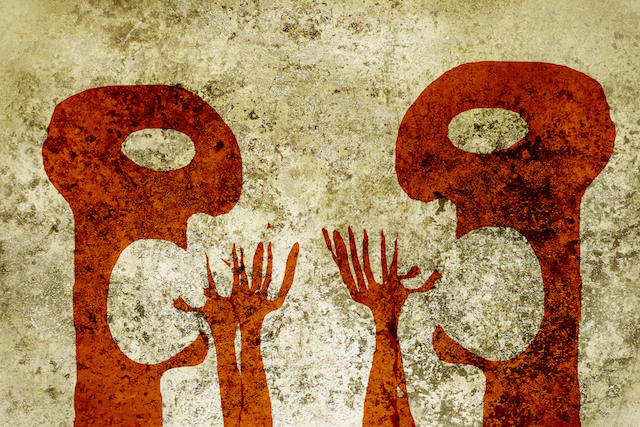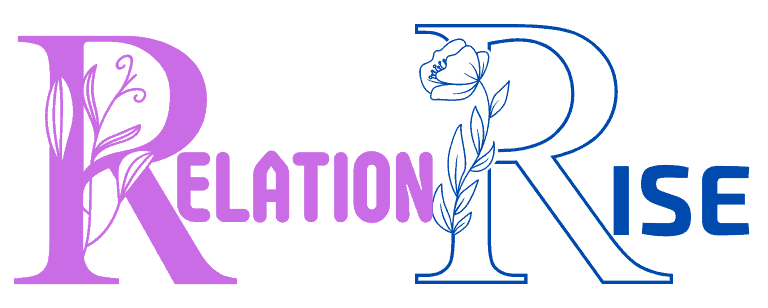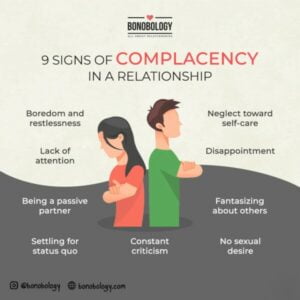What Does It Mean to Have an Estranged Relationship
Having an estranged relationship means being emotionally detached or separated from a person, often a family member. This can result from unresolved conflicts or emotional distance.
An estranged relationship is a state of emotional disconnect and separation from someone, usually a family member or close relative. This can occur due to unresolved conflicts, communication breakdown, or other underlying issues. When individuals experience an estranged relationship, it often leads to feelings of loneliness, sadness, and a lack of support.
Reconciliation or rebuilding the relationship may require open communication, seeking professional help, or addressing the root cause of the estrangement. Understanding the complexities of an estranged relationship and its impact on one’s emotional well-being is essential in finding a way to navigate through such challenging circumstances. By exploring the causes and potential solutions, individuals can work towards healing and repairing strained relationships.

Understanding Estrangement In Relationships
Understanding estrangement in relationships means having a divided or disconnected bond with a loved one. It can result from unresolved conflicts, misunderstandings, or a breakdown in communication, leading to emotional distance and disconnection. Recognizing and addressing the underlying issues is crucial in navigating and potentially healing estranged relationships.
Defining Estranged Relationships
Estranged relationships refer to the state of being emotionally or socially detached from someone with whom you had a close connection. This type of relationship typically involves a significant breakdown in communication and frequently includes feelings of hurt, betrayal, and lack of trust. It often results in the distancing or complete cessation of interactions between the parties involved. The causes of estrangement can vary from unresolved conflicts, emotional abuse, or incompatible values, leading to a sense of disconnection.
Exploring The Emotional Dynamics
In estranged relationships, the emotional dynamics are deeply complex and often painful. Emotional detachment is a prominent feature, as individuals in these relationships may find it challenging to connect emotionally, leading to a sense of numbness or indifference. Feelings of betrayal, heartache, and a sense of loss can be pervasive. Moreover, navigating through the experience of estrangement can result in significant stress and emotional turmoil, impacting mental well-being.
Causes Of Estrangement In Relationships
Understanding the causes of estrangement in relationships is essential for navigating the complex dynamics that lead to the breakdown of interpersonal connections. Whether the estrangement is from a family member, friend, or romantic partner, the underlying reasons can vary widely. Exploring the factors that contribute to estrangement sheds light on the intricacies of human relationships, empowering individuals to approach these situations with greater insight and empathy.
Familial Conflicts And Misunderstandings
Familial conflicts and misunderstandings are common catalysts for estrangement in relationships. Disagreements over lifestyles, values, or differing perspectives can create deep rifts between family members. Additionally, longstanding resentments or unresolved issues from the past can fuel ongoing tension and eventually lead to estrangement. In some cases, the pressure to conform to familial expectations or traditions may create an environment where individuals feel unheard or invalidated, prompting them to distance themselves from their relatives.
Mental Health And Behavioral Factors
Mental health and behavioral factors play a significant role in the development of estrangement in relationships. Issues such as untreated mental health conditions, substance abuse, or disruptive behavioral patterns can strain interpersonal connections and erode trust. Individuals struggling with their mental well-being may find it challenging to maintain healthy relationships, while their loved ones may struggle to understand or support them effectively, leading to distance and estrangement.
Impact Of Estrangement On Individuals
Having an estranged relationship can exert significant impacts on individuals, affecting them emotionally, psychologically, socially, and within their familial connections. The repercussions of estrangement can permeate various aspects of one’s life, leading to profound and often challenging experiences.
Emotional And Psychological Toll
The emotional and psychological toll of estrangement can be profound. Feelings of loneliness, sadness, and grief can be overwhelming for individuals who are estranged from their loved ones. It also often precipitates a sense of loss and betrayal. Anxiety and depression are common outcomes, with individuals struggling to come to terms with the rupture of their relationships. The constant emotional burden of longing for reconciliation or understanding can take a significant toll on one’s mental well-being, impacting their overall quality of life.
Social And Familial Repercussions
When individuals experience estrangement, it can lead to detrimental social repercussions. Isolation and alienation may arise as a result of estrangement from family members or close friends. Unresolved conflicts and strained relationships may lead to individuals feeling a lack of support from their social network, exacerbating their sense of desolation. Within the family unit, estrangement can result in fractured relationships and emotional disruption, potentially affecting not only the estranged individuals but also other family members. This can lead to a decreased sense of belonging and security, impacting one’s overall emotional stability.
Coping Strategies For Dealing With Estrangement
Estrangement refers to the emotional and physical distance between family members or loved ones who have decided to cut off contact with one another. Coping with estrangement can be an incredibly challenging and painful experience, often leading to feelings of loneliness, guilt, and confusion.
When dealing with estrangement, it’s essential to find effective coping strategies to help navigate through the complex emotions and difficulties that come with it.
Communication And Reconciliation Efforts
Communication plays a vital role in attempting to reconcile with a family member or loved one. Open and honest conversations can provide a platform for both parties to express their feelings and gain a better understanding of each other’s perspectives.
Reconciliation efforts involve taking the initiative to reach out and initiate a dialogue with the estranged individual. Expressing a genuine desire to resolve the issues and rebuild the relationship can be the first step towards potential reconciliation.
Seeking Professional Support And Guidance
Seeking professional support from therapists, counselors, or mediators can offer valuable guidance and assistance in navigating the complexities of an estranged relationship. Professional help can provide individuals with tools and strategies to cope with their emotions and help facilitate the process of healing and reconciliation.
Guidance from experienced professionals can also help individuals gain insight into their own emotions and behaviors, enabling them to approach the situation with greater clarity and understanding.
Rebuilding And Healing Estranged Relationships
After experiencing estrangement in a relationship, the journey to rebuilding and healing can be both challenging and rewarding. It involves forgiveness and empathy as well as establishing healthy boundaries and expectations. These key aspects play a significant role in navigating the path to reconciliation and fostering a renewed connection.
Forgiveness And Empathy
Forgiveness is pivotal in the process of rebuilding an estranged relationship. It involves letting go of the pain and resentment and opening oneself to the possibility of reconciliation. Empathy is equally important, as it allows individuals to understand and appreciate the emotions and perspectives of the other party, fostering a sense of compassion and understanding.
Establishing Healthy Boundaries And Expectations
When rebuilding an estranged relationship, it is crucial to establish healthy boundaries that promote mutual respect and understanding. Setting clear expectations enables both parties to communicate openly and address any issues that may arise, laying the foundation for a healthier and more sustainable connection.
Frequently Asked Questions For What Does It Mean To Have An Estranged Relationship
What Are The Signs Of An Estranged Relationship?
Estranged relationships exhibit lack of communication, emotional distance, and unresolved conflicts, resulting in alienation.
How Can An Estranged Relationship Impact Mental Health?
Being in an estranged relationship can lead to feelings of loneliness, anxiety, depression, and low self-esteem.
Can An Estranged Relationship Be Repaired?
Yes, with open communication, empathy, understanding, and professional guidance, estranged relationships can be repaired.
What Steps Can You Take To Address An Estranged Relationship?
Acknowledging the issues, initiating honest conversations, seeking therapy, and being patient can help address estranged relationships.
Is It Healthy To Maintain An Estranged Relationship?
Continuing an estranged relationship can be unhealthy if it causes distress and hinders personal growth and well-being.
Conclusion
Having an estranged relationship can be emotionally challenging for all parties involved. It’s essential to prioritize communication, understanding, and empathy in such situations. By fostering open dialogue and seeking professional guidance, it’s possible to work towards resolution and healing for a more fulfilling and harmonious relationship.





